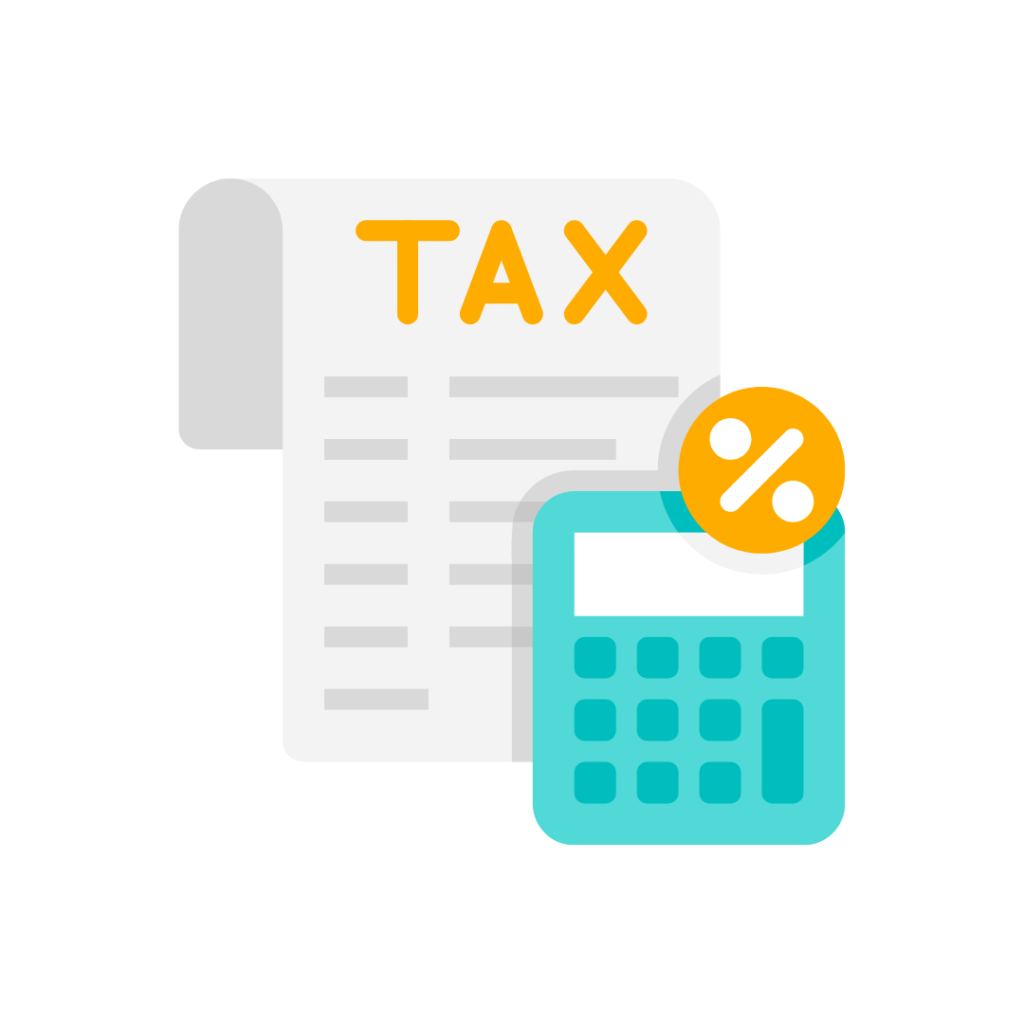Ben Walker Gives Tips
For Sustainable Success

Being a business owner, you’re not capable of doing everything. You need to delegate and let go of some core business and key responsibilities for sustainable success.
You have so many lives and livelihoods under your responsibility, which is why oversight is crucial.
We’ve seen some business owners just brush off tasks as ‘someone else’s problem,’ but the truth is, even if someone else is doing it, it’s still your problem if that plate drops at the end of the day.
Delegating while still maintaining oversight is crucial for sustainable success and work-life balance.
You need to make sure you don’t get stuck in the business to the point where you neglect spending time with your family. Ben Walker, Founder of Inspire said, “I’ve made so many of those mistakes in the past. There comes a point where you have to snap yourself out of it and ask yourself, what am I here for? Once you’ve had that realisation, you make necessary changes and keep pushing forward.”
By finding the right balance between delegation, oversight, and personal priorities, you can build a thriving business and lead a fulfilling life.
We firmly believe that having a strong team around you is one of the most crucial factors for success. Having a reliable and capable team can make all the difference in achieving your goals.
If you’re keen to explore changing accountants, we have a non-obligation process to do that. The first step is booking a strategy call with one of our accounting team. It’s a free 20-minute zoom or phone call where you get to meet us to manage your questions.
From that point, you can consider doing a “Look Under The Hood” with us. There is no obligation to change accountants, but we give you a second opinion if you’re paying too much tax.
Throughout that process, we can identify any problems we see with your current setup. Anything that your current accountant hasn’t claimed, or tax you may have overpaid, and strategies of how we might fix that going forward. We can run through with you once you book with us.
How Do Banks Calculate Buying Capacity?
We invited Colin O-Loughlin, Director and Mortgage Broker of Arch Brokerage on the topic, “Buying A Commercial Property In SMSF”. In the video he walks us through how banks calculate the buying capacity.

When it comes to securing a loan from a bank, understanding how they calculate buying capacity is essential.
Other things that banks will consider, on a case by case basis, is the remaining assets and funds, and the potential returns that they’ve got coming back into the fund.
Keeping in mind, the combined net incomes need to provide a minimum 1.25 times cover of the assessed debt repayment.
Essentially, let’s say that you had a repayment of $50,000 a year from a loan.
It just needs to cover 1.25 times that with the income.
So, if we looked at $50,000, as long as there’s about $62,500 in market rent, super contributions, or potential remaining returns, then it would be sufficient to tick off and be able to get the loan.
There’s no extra buffers or worries or anything else that you need to consider when looking at it.
It’s a very simplified version of, “Is there enough income coming in? What’s the outgoing? And is there a positive part there?”
That’s a simple view on how the buying capacity is calculated from the bank’s point of view.
If you’re keen to explore changing accountants, we have a non-obligation process to do that. The first step is booking a strategy call with one of our accounting team. It’s a free 20-minute zoom or phone call where you get to meet us to manage your questions.
From that point, you can consider doing a “Look Under The Hood” with us. There is no obligation to change accountants, but we give you a second opinion if you’re paying too much tax.
Throughout that process, we can identify any problems we see with your current setup. Anything that your current accountant hasn’t claimed, or tax you may have overpaid, and strategies of how we might fix that going forward. We can run through with you once you book with us.
Is A Budget The Same As A Forecast?

On a recent webinar, a client had asked, “Is a budget the same as a forecast?”
Here’s what we said –
We prefer to use the word ‘budget’. There are many different ways that Accountants, or CFO people forecast or budget. For us, it’s using the budget feature in Xero.
We use this in our own business and it’s working well. It gives us so much clarity. Our team gets involved in it. And there are forecasting add-ons you can get with Xero that take your budget and turn it into a cash flow forecast or a three-way forecast. It relies on your Xero chart of accounts and your budget being spot on.
If you’re keen to explore changing accountants, we have a non-obligation process to do that. The first step is booking a strategy call with one of our accounting team. It’s a free 20-minute zoom or phone call where you get to meet us to manage your questions.
From that point, you can consider doing a “Look Under The Hood” with us. There is no obligation to change accountants, but we give you a second opinion if you’re paying too much tax.
Throughout that process, we can identify any problems we see with your current setup. Anything that your current accountant hasn’t claimed, or tax you may have overpaid, and strategies of how we might fix that going forward. We can run through with you once you book with us.
Who Pays The Parental Leave
A commonly asked question when it comes to parental leave is, “who pays the parental leave – Is it the employer or the federal government?”
Who pays the Parental Leave?
The answer is: The Department of Human Services.
They manage any welfare payments such as age pension and paid parental leave. Once you have a Department of Human Services “customer reference number” (CRN,) all you have to do is give that to your employer and let them know that you are going to be receiving parental paid leave.
What happens after that is, they funnel the money through your employer and then your employer passes that money onto you. Alternatively, they can also pay directly, however that’s where it can get confusing.
Overall, your employer doesn’t pay for parental leave, it still comes from the Federal government and The Department of Human Services is how it is managed.

If you’re keen to explore changing accountants, we have a non-obligation process to do that. The first step is booking a strategy call with one of our accounting team. It’s a free 20-minute zoom or phone call where you get to meet us to manage your questions.
From that point, you can consider doing a “Look Under The Hood” with us. There is no obligation to change accountants, but we give you a second opinion if you’re paying too much tax.
Throughout that process, we can identify any problems we see with your current setup. Anything that your current accountant hasn’t claimed, or tax you may have overpaid, and strategies of how we might fix that going forward. We can run through with you once you book with us.
Should I Put My Home Into A Trust?
By buying the family home in a personal name, we ensure we get the ‘Capital Gains Tax Main Residence Exemption’ when we sell that house later.
There is a stamp duty concession once you’ve bought a home in your name.
Those things often outweigh the benefits of putting the family home in a trust’s name.
The other thing to consider is a setup and admin fees of a trust – it’s another “tax” from the accountant to go and manage.
There are only limited situations where we have seen that it makes sense.
As a general rule, we would always put the family home in the asset person’s name.
If you’re keen to explore changing accountants, we have a non-obligation process to do that. The first step is booking a strategy call with one of our accounting team. It’s a free 20-minute zoom or phone call where you get to meet us to manage your questions.
From that point, you can consider doing a “Look Under The Hood” with us. There is no obligation to change accountants, but we give you a second opinion if you’re paying too much tax.
Throughout that process, we can identify any problems we see with your current setup. Anything that your current accountant hasn’t claimed, or tax you may have overpaid, and strategies of how we might fix that going forward. We can run through with you once you book with us.
The Company Business Structure Explained
The company structure is one of the most common business structures.
Clients who have already done their research, or new clients who are looking at setting up a business, a company structure is usually what they opt-in.

For this structure, we have two different tax rates
- 25% – It used to be 27.5% last 2021 financial year, and it has dropped to 25% in the 2022 financial year.
- 30% – The 30% is for big entities that are over $10 million, and entities that have passive income.
If they’re receiving income from rental property dividends and they have millions of dollars in shares, they will be taxed at 30% for those kinds of entities.
A company structure gives us some kind of flexibility when it comes to tax planning – if the structure is set up correctly
There are two key roles that we put in place in a company:
- Director – A director is someone who controls and does the daily lease agreement and looks after the day-to-day activities of the company.
- Shareholder – A shareholder is someone who benefits from the company’s profit. If the company’s making a profit, they can take benefits of that profit when we declare dividends. The shareholder’s job is to make sure that the shares are held correctly. We can hold the shares personally through a discretionary family trust or a self-managed super fund. There are different ways you can hold shares.


Asset Protection
We want to make sure when you’re trading via company, we have those asset protections in place. Make sure that the director of the company doesn’t have too many assets in their name. That is just to protect their wealth aside.
If something happens in the company, people can only go after the company’s money, nothing personally in the director’s name. We want to make sure that the director’s wealth or the assets they have bought outside the company are protected.
If you’re keen to explore changing accountants, we have a non-obligation process to do that. The first step is booking a strategy call with one of our accounting team. It’s a free 20-minute zoom or phone call where you get to meet us to manage your questions.
From that point, you can consider doing a “Look Under The Hood” with us. There is no obligation to change accountants, but we give you a second opinion if you’re paying too much tax.
Throughout that process, we can identify any problems we see with your current setup. Anything that your current accountant hasn’t claimed, or tax you may have overpaid, and strategies of how we might fix that going forward. We can run through with you once you book with us.
How To Add Subscription Cost To Xero
We want to make sure your expenses in
Xero are in detail
Let’s take for example, subscriptions.
At Inspire, we have about 15 to 20 accounts of subscriptions.
And in the chart of accounts, every account needs a number associated with it in Xero.
To avoid creating a mess of account codes, we would recommend indicating each subscription as:
- 485.1
- 485.2
- 485.3
- 485.4
It’s helpful to keep it consistent in numbering and to also separate each supplier/ subscription.
Similarly, we do this with wages to every single team member,
Most of our account codes will be split by each supplier.
It is a lot of work to set-up initially. But, you can set up rules.
For instance, if I receive an invoice from Inspire Accountants, that will automatically get linked to Accounting-Inspire.
If we get an invoice from Xero, it goes to Subscriptions-Xero.
The set-up is intense, but once you have the systems set-up well, it’s not a huge amount of additional work ongoing.
The clarity that you get from looking at a Profit and Loss statement, you’re going to easily pick up:
- anomalies;
- missing months if they’re not there;
- double-ups; or
- a supplier’s charged you twice
This is going to be so obvious if you’re going to be this granular in detail.
Personally, If I was to lump subscriptions in one item line such as the Xero Templates that they give you – I would have NO clarity on every transaction and it’s not going to mean as much to me.
Some of these suggestions might be intense, but they are amazing when it comes to running a business and getting clarity on your budget.
If you’re keen to explore changing accountants, we have a non-obligation process to do that. The first step is booking a strategy call with one of our accounting team. It’s a free 20-minute zoom or phone call where you get to meet us to manage your questions.
From that point, you can consider doing a “Look Under The Hood” with us. There is no obligation to change accountants, but we give you a second opinion if you’re paying too much tax.
Throughout that process, we can identify any problems we see with your current setup. Anything that your current accountant hasn’t claimed, or tax you may have overpaid, and strategies of how we might fix that going forward. We can run through with you once you book with us.
What To Look For When Investing
We invited Phil Grant of NAI Harcourts Pinnacle to talk about investing in commercial property.

Here’s what he said about
what to look for when investing
- Good Location, Quality Tenant/s, Easily Relettable, Downturn Proof
Some of the major things that really need to be taken into consideration when you’re looking at commercial investments are the fundamentals. What are the fundamentals of a good investment?-
- That’s got to be a good location.
- If it is a tenanted investment already, make sure that you’ve done some research on the tenant.
- Are they good-quality tenants?
- Are they a local mom-and-dad business?
- Are they a national?
- Are they international?
- Is the building you’re buying easily relettable?
Let’s say that it’s already got the tenant and you go, “that’s a really good return.”
How about if the tenant does move out?
- Is it something that has been specifically designed for that tenant and going to be very hard to relet?
- Or is it something that’s fairly generic and you can relet it really easy?
- Is the business that’s in that investment property downturn proof?
I’d use that as a generalized term. But if the business world goes terribly, like we’ve had a tough run for the last couple of years, depending on which industry you’re in. Is it a business that will survive that? And if it is, that could be a consideration for you to look at.
I briefly mentioned that you’ve got different sectors. You’ve got industrial, you’ve got commercial and retail.

Retail
The retail sector in the last couple of years has been absolutely smashed.
Commercial
In the commercial sector, if we look at offices they have had to sort of evolving. Are they working from home? Are they working from the office? Are they working from both and switching?
Industrial
In industrial property, out of the three, the one that’s actually been what I would consider downturn proof at the moment. In some instances, it is where people are now basically dealing with third parties. The product will come in, the product will go out, or services will come in and out. It’s the one that’s seen probably the most change and growth in the last couple of years than the other two. But those are some of the things you got to look at.
- Undervalued property
- Property that requires repositioning
- If it’s too good to be true, it probably is!
- Check leases very carefully, check flood maps, and Research tenants, and Leasebacks.
As accountants, we’ve helped Physio clinic owners get a handle on the key numbers in their business. But, also going back to the core of what we do which is solving all the tax problems that pop up. We make sure that your service trust is being used appropriately.
We’ve also helped a lot of Physio clinic owners buy their physical space. We can incorporate that in their self-managed super fund, or we could do it under a structure outside of super. There are some different ways to do that.
We ensure you are paying the right amount of tax and not a cent more. Physio clinic owners, done well can be a highly profitable business. We guarantee that you’re not paying the extra tax that you need to.
If you’re keen to explore changing accountants, we have a non-obligation process to do that. The first step is booking a strategy call with one of our accounting team. It’s a free 20-minute zoom or phone call where you get to meet us to manage your questions.
From that point, you can consider doing a “Look Under The Hood” with us. There is no obligation to change accountants, but we give you a second opinion if you’re paying too much tax.
Throughout that process, we can identify any problems we see with your current setup. Anything that your current accountant hasn’t claimed, or tax you may have overpaid, and strategies of how we might fix that going forward. We can run through with you once you book with us.
Why Trusts Are Great For Tax Planning
A trust allows us to plan the tax so well so that it can be distributed to whoever it is needed for each financial year.
Keep in mind, it needs to be, not only a distribution on paper, but the cash also needs to exchange hands. The money needs to be transferred from the trust bank account into the beneficiaries bank account.

If you’re keen to explore changing accountants, we have a non-obligation process to do that. The first step is booking a strategy call with one of our accounting team. It’s a free 20-minute zoom or phone call where you get to meet us to manage your questions.
From that point, you can consider doing a “Look Under The Hood” with us. There is no obligation to change accountants, but we give you a second opinion if you’re paying too much tax.
Throughout that process, we can identify any problems we see with your current setup. Anything that your current accountant hasn’t claimed, or tax you may have overpaid, and strategies of how we might fix that going forward. We can run through with you once you book with us.
Modernisation of PAYG instalments
If you have a company running a business and you’re prepaying some tax for the current financial year, this is something that has been anticipated. The pay as you go (PAYG) instalments is the way that you prepay tax for the current year and usually, it’s based on last year’s returns that were lodged. The last year of business and the current year can be vastly different for a business in terms of performance and the business is still paying tax as if it’s trading as it was last year.
PAYG does not necessarily mean you are saving tax but it is a cash flow help so you don’t have to prepay as much. Businesses and companies can opt into a real-time PAYG instalments system and calculations which is based off of the accounting software you use. It will be looked into by looking at the current year and then they will calculate the tax instalment that you are supposed to be paying based on the performance of your business currently and not for the previous year.
The great thing about this is, it helps you budget your cash flow and plan your cash a lot easier. For example, some clients are paying $15,000 in instalments, but they don’t have that money and start falling behind on their payments. While there is the ability to levy it down to a reasonable amount, this is more of a proactive approach. So in reality, it is being realigned to be closer to what your business is actually doing at the moment and in turn, managing cash flow is more important than ever.
NOTE: The PAYG Instalment default calculation of last year + 10% will be changed to 2% for 2023 FY

If you’re keen to explore changing accountants, we have a non-obligation process to do that. The first step is booking a strategy call with one of our accounting team. It’s a free 20-minute zoom or phone call where you get to meet us to manage your questions.
From that point, you can consider doing a “Look Under The Hood” with us. There is no obligation to change accountants, but we give you a second opinion if you’re paying too much tax.
Throughout that process, we can identify any problems we see with your current setup. Anything that your current accountant hasn’t claimed, or tax you may have overpaid, and strategies of how we might fix that going forward. We can run through with you once you book with us.
Get Cashed Up


